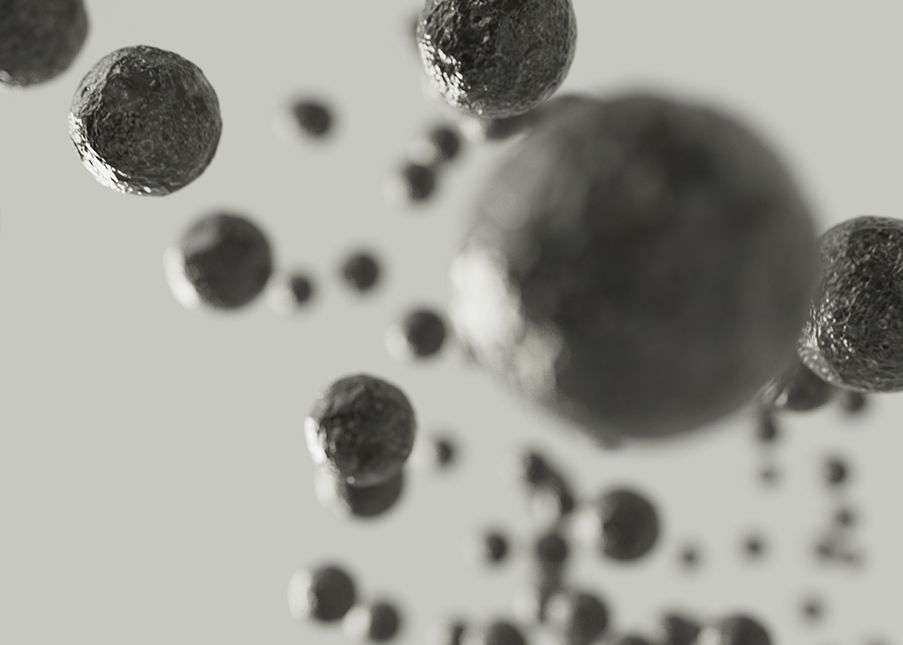01.09.2023
| News
RETHINK PLASTICS: The steam-free process represents a significant advancement toward closed-loop recycling management of trim components.
PARAT, a BayBG Beteiligungsunternehmen, has devised an innovative approach to process particle foams, which effectively minimizes product weight, reduces material consumption, and boosts the recyclability of composite components. This is made possible by utilizing plastics from a single family of materials.
The technique of backfoaming films and textiles with particle foams (PBF) not only improves thermal insulation but also leads to higher CO2 savings compared to other material combinations. Particle foams are foam beads made of thermoplastics and are commonly used for packaging, thermal insulation, and vehicle manufacturing thanks to their unique mechanical properties.
“The new dry production process for particle foaming is eco-friendly, improves the CO2 footprint, and increases recyclability. It is a significant milestone in producing sustainable trim components that contribute to closed-loop material management,“ explains Frank Peters, CEO of PARAT Beteiligungs GmbH, during the ”Rethink Plastics Conference“ held at the Fill company in Gurten, Austria, where the new technology was presented for the first time.
”This innovative technology again justifies our claim to be at the forefront of the industry. In the past, producing particle foam was expensive and required a lot of energy due to the use of water vapor in the foaming process. However, a new method called dry processing has been developed by a consortium of companies, including Fill, Teubert, Fox Velution, and PARAT. This method involves pre-foaming the granulate using infrared radiation and then ready-foaming it in a dynamically tempered mold. This process is much more efficient and cost- effective. “We continuously strive to improve our processes and stay current with technology,“ says Peters.
The technique of backfoaming films and textiles with particle foams (PBF) not only improves thermal insulation but also leads to higher CO2 savings compared to other material combinations. Particle foams are foam beads made of thermoplastics and are commonly used for packaging, thermal insulation, and vehicle manufacturing thanks to their unique mechanical properties.
“The new dry production process for particle foaming is eco-friendly, improves the CO2 footprint, and increases recyclability. It is a significant milestone in producing sustainable trim components that contribute to closed-loop material management,“ explains Frank Peters, CEO of PARAT Beteiligungs GmbH, during the ”Rethink Plastics Conference“ held at the Fill company in Gurten, Austria, where the new technology was presented for the first time.
”This innovative technology again justifies our claim to be at the forefront of the industry. In the past, producing particle foam was expensive and required a lot of energy due to the use of water vapor in the foaming process. However, a new method called dry processing has been developed by a consortium of companies, including Fill, Teubert, Fox Velution, and PARAT. This method involves pre-foaming the granulate using infrared radiation and then ready-foaming it in a dynamically tempered mold. This process is much more efficient and cost- effective. “We continuously strive to improve our processes and stay current with technology,“ says Peters.
PARAT has its own research and development center in Neureichenau, where developers consistently work on advancing innovative technologies and products. In addition, the company successfully formed collaborative partnerships around the globe. ”Our company produces large-size particle foam components, particularly for the automotive industry. These components are utilized in various vehicles such as agricultural and construction machines, caravans, and motorhomes.
Car manufacturers are seeking ways to cut material consumption and manage costs amid rising raw material prices. Our components offer a solution to this problem,” says Peters. “Lightweight components decrease vehicle weight and fuel consumption. Thus, affordable lightweight construction has an accordingly high demand.”
Peters takes great pride in the enhanced recyclability these products provide. “The plastics industry is undergoing a crucial shift towards a sustainable closed-loop material management system. Our company is dedicated to playing an active role in this transformation and is working tirelessly towards this goal. Our ongoing research and development efforts are focused on using recycling-friendly materials and recyclates that can greatly improve reutilization.”
According to Peters, the new technology also provides new application options for trim parts in medical devices, offering easy-to-clean and antibacterial surfaces. It can also be used to serve the power sports industry, including jet skis, snowmobiles, and more.
Car manufacturers are seeking ways to cut material consumption and manage costs amid rising raw material prices. Our components offer a solution to this problem,” says Peters. “Lightweight components decrease vehicle weight and fuel consumption. Thus, affordable lightweight construction has an accordingly high demand.”
Peters takes great pride in the enhanced recyclability these products provide. “The plastics industry is undergoing a crucial shift towards a sustainable closed-loop material management system. Our company is dedicated to playing an active role in this transformation and is working tirelessly towards this goal. Our ongoing research and development efforts are focused on using recycling-friendly materials and recyclates that can greatly improve reutilization.”
According to Peters, the new technology also provides new application options for trim parts in medical devices, offering easy-to-clean and antibacterial surfaces. It can also be used to serve the power sports industry, including jet skis, snowmobiles, and more.
